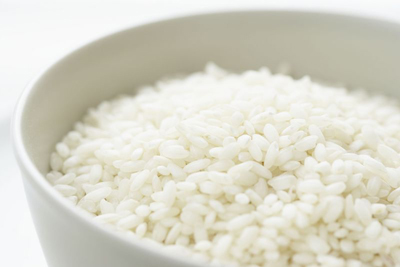
 CHARLESTON—Operation Rice Bowl is an easy way for children, and adults, to practice stewardship.
CHARLESTON—Operation Rice Bowl is an easy way for children, and adults, to practice stewardship.
Most of the faithful are familiar with the rice bowl program, which is sponsored every year by Catholic Relief Services and promoted by parishes, schools, and other groups during the Lenten season.
Students and families bring home a cardboard box that folds into a small bowl. The premise is to fast by eating a small meal and then place the money saved into the rice bowl.
Just one meatless meal a week could result in $7 or more for the people helped by the program. That would be a family contribution, but children can make their own donations. Maybe they have given up an item they normally spend allowance on, and that money can go in the bowl.
Children are visual, so the more images they have of the people and countries in need, the more real and personal it becomes to them.
Diocesan schools participating in the rice bowl program try to incorporate lessons on the five featured countries into their class time.
Carole Anne White, principal at St. John in North Charleston, said her school displays a large map showing where each country is with some facts on the region and people.
The collection started on Ash Wednesday, with the reading of Isaiah 58:6-8.
On that day at Our Lady of Peace in North Augusta, Father Timothy M. Lijewski blessed the rice bowls before they were distributed. Kathleen Morton, interim principal, said they help each year.
Oratorian Father David D. Valtierra, campus minister at Winthrop University, said the college youth group also participates.
“Our students are really generous,” he said. “They try to do a lot of service things. If they don’t have money they’ll give their time.”
A new organization to join Operation Rice Bowl is the St. Francis Health System, which oversees St. Francis and Roper hospitals in Charleston.
“We as a health care system are trying to think more globally,” said Mark Dickson, director of missions at St. Francis.
He said they don’t have any specific goal in mind, but are engaged in a non-denominational capacity to create awareness.
Dickson added that there is continuity between hospitals and the healing mission of Jesus to care for all in the world.
Kathryn Harrison, coordinator of mission community activities, said employees are assisting food security on two fronts: by donating to the rice bowl campaign and collecting canned food for Lowcountry Food Bank.
Dickson and Harrison met with Thomas Awiapo on Feb. 9 and talked about how solidarity can change the world. Awiapo is one of the CRS success stories who now serves as agency coordinator in Ghana. (See related article on Page 5.) He travels the United States each year to tell his story.
He said CRS does so much, but their first priority is always the basic necessities of life: food and water.
In prosperous nations, Awiapo said, children cry because they don’t like their food and don’t want to eat it. In poor countries, children cry because there is no food.
One of the goals of Operation Rice Bowl is food security, meaning people can rest easy knowing that no one in their community will die of starvation.
Another project is to provide systems for clean water. In undeveloped countries, women and children can spend up to five hours each day searching for water. Just one filtration unit can save that time, allowing girls to attend school and women to learn business skills, said Chris Arthen, a CRS gift officer.
Irrigation systems also allow farmers in drought-ridden areas to grow crops for their family and to sell at market.
All donations are used to find ways to support local economies and allow people to engage in their own destinies, Arthen said.
Awiapo calls it the “gospel of love.”
For more information, call (800) 222-0025 or visit the Operation Rice Bowl Web site at http://orb.crs.org.
